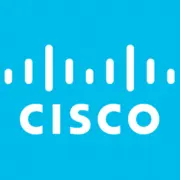Cisco UCS Flexible, Intuitive and Feature Rich
Overall Satisfaction with Cisco UCS Series
We currently have a mixture of COLO and Cloud devices. Our primary platform resides on Cisco USC B chassis (we have quite of few of them across the globe.) These for the most part are running virtual servers leveraging VMware as the hypervisor technology. We have implemented a number of virtual technologies successfully using this hardware from normal VMS to Kubernetes nodes. This hardware allows us to provide our development teams significant cost savings as compared to migrating to the Cloud. We typically host our development as well as many production environments on our Cisco Chassis.
Pros
- Our primary networking environment is based on Cisco technologies and the Cisco UCS meshes very well with the networking tech.
- We have multiple products and multiple customers and the Cisco UCS does an excellent job of offering significant computing power while being able to slice it up and isolate those environments physically and logically from other environments.
- Increased flexibility in being able to upgrade hardware while leveraging our previous expense of buying the chassis. We can update individual blades at a lower cost than buying new servers every few years.
- Related to the previous point. The chassis offers more flexibility without the paywall associated with buying all new hardware. There are a number of different modules that can be added to the chassis that change the offered features while keeping the cost manageable.
Cons
- Just thinking if there is a way to make enabling lightweight containers (ie Kube nodes) easier due to build in features? More of a question than a statement.
- I really can't think of three things at this time. I have used Sun, IBM, and Cisco Blade servers and Cisco seems to be the most intuitive and easiest to work with.
- Flexibility in VLan configuration.
- Hardware isolation.
- Fail-over and flexibility in effecting repairs without downtime.
- I dont know the actual ROI vs running our environments in the Cloud, it really depends on each environment but we are saving at least 50% cost over moving the same environments to the cloud.
- A negative that might bring the ROI down as compared to the cloud would be development moving to lightweight services that the UCS wouldn't be natively able to deliver and would require expertise in container tech to reproduce what is easily available AWS, Azure, GCP, OCI.
- The positive impact is the flexibility, redundancy, and fail-over features in the UCS that ensure 99.999%+ uptime which really helps compare cost-wise directly to Cloud environments that boast high uptime.
- Oracle Sun Blade 6000 and Lenovo Flex System Blade Servers (formerly IBM BladeCenter)
I don't know how they all three stacks up cost-wise. I used the IBM BladeCenter and Oracle 6000 when I worked at Oracle. I find that the UCS is more intuitive and surprise its networking has a lot more functionality and flexibility than the competitors. They all in my opinion offer the fail-over and flexibility in downtime without impact.
Do you think Cisco UCS Series delivers good value for the price?
Yes
Are you happy with Cisco UCS Series's feature set?
Yes
Did Cisco UCS Series live up to sales and marketing promises?
Yes
Did implementation of Cisco UCS Series go as expected?
Yes
Would you buy Cisco UCS Series again?
Yes
Using Cisco UCS Series
There are different levels of usage: from System Engineers who install/configure/maintain. System Engineers who access the hypervisor layer to configure new servers/environments. Developers who use the server environments to write/test/publish software. Development Support staff, sales etc who access hosted environments and applications running on the UCS. And of course, customers who unknowingly depend upon the high uptime it offers to gain access to their production environments.
5 - people with background in networking, compute hardware and understanding of various operating systems.




Comments
Please log in to join the conversation